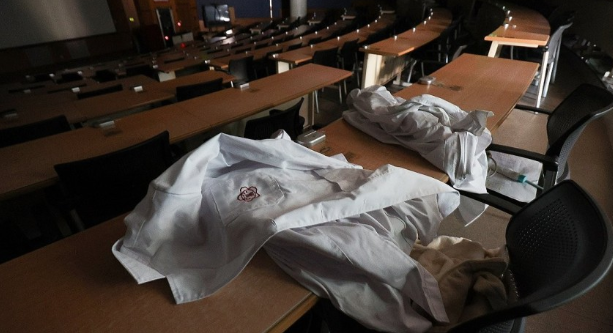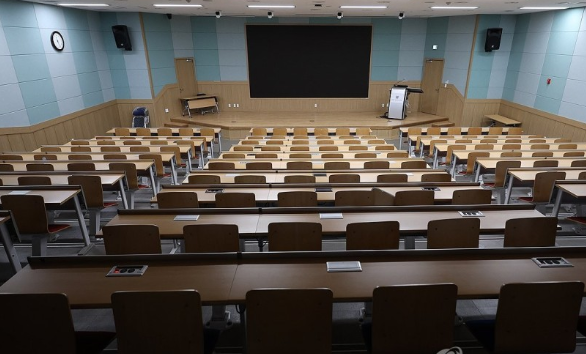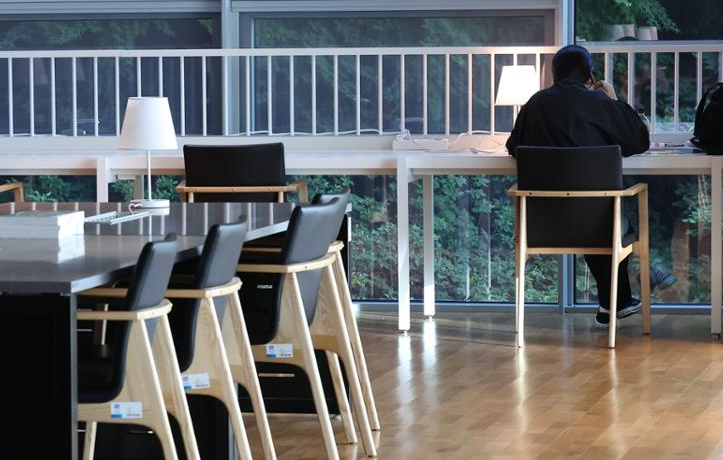
“Why are medical students receiving such special treatment when there are no medical students above the law? I don’t know why they are giving special treatment to medical students.” (Kim Do-yoon, a public administration student at B University in Seoul)
“I don’t understand why medical students are treated like this. The government even said it would freeze the number of students, but it is only seen as collective selfishness.” (Choi, a student majoring in English and Literature at D University in Seoul) Amid the controversy over increasing the number of medical students taking a group leave of absence and refusing classes, which started last year, criticism is mounting among non-medical students.
It is pointed out that even though most medical students have been refusing classes without permission for more than a year since February last year, it is difficult for non-medical students to even imagine the government to suspend academic schedules and provide convenience.
In order to end the disruptions in medical school education, nearly half of medical schools set a deadline for students to return to the 28th, and they heard the voices of non-medical students on the 24th.
“I understand the situation of taking a group leave of absence, but it is increasingly reprehensible to see the government and the school struggling with medical students,” said Park (22), a student in the Department of Life Sciences at A University in Seoul.
“Trafficial students get an F grade right away even if they don’t go to class for a few days, but it is a clear ‘looking’ and discrimination against other students to discuss the paid and expulsion of medical students.” Non-medical students raised the issue of equity, saying that the government is giving preferential treatment by considering their position unilaterally, even though medical students are still students.

Kim Do-yoon (23), who is majoring in public administration at B University in Seoul, pointed out, “Students majoring in public administration other than medical schools do not refuse to take classes in groups for such a long time even if they do not like any policy.”
“Even though the group leave of absence of medical students has already been over a year, does it implicitly acknowledge that continuing to give and wait for a grace period is a privileged class that only medical students can break the rules?” he complained.
Han (24), a business student at B University in Seoul, pointed out that “medical students can claim their rights, but it is questionable whether this method is justified.”
“It is inevitable that opportunities will expand as the number of medical schools increases, but the refusal of existing medical students to take classes in a group to prevent it is only seen as an attempt to maintain their privileges,” he said. “I think medical students are trying to exert too much influence because they will become doctors.”
A 28-year-old engineering student at C University in Seoul said, “It doesn’t look good for a college student who benefited from the expansion of medical school capacity last year to refuse to take classes. If the school and the government refuse to take classes even when they reach out, it would be better to reject or remove them as a rule.” Criticism among non-medical students continued online as well.
“The government said it would freeze the number of medical students, but I don’t know why medical students are not returning to school,” the online community for college students said. “In fact, isn’t it funny that medical students should watch their faces to increase the number of medical students?”

Another user also responded sharply, “The biggest problem is that medical students think they are doctors,” adding, “They are just college students who don’t know anything yet, but they seem to live under the illusion of something great.” On the other hand, news that some universities are considering adding more vacancies by transferring to other departments in accordance with the medical student system rules is welcomed.
In the university community, expectant responses poured out, saying, “If medical students are expelled, the number of students transferred to medical schools will increase.”
JULIE KIM
US ASIA JOURNAL



